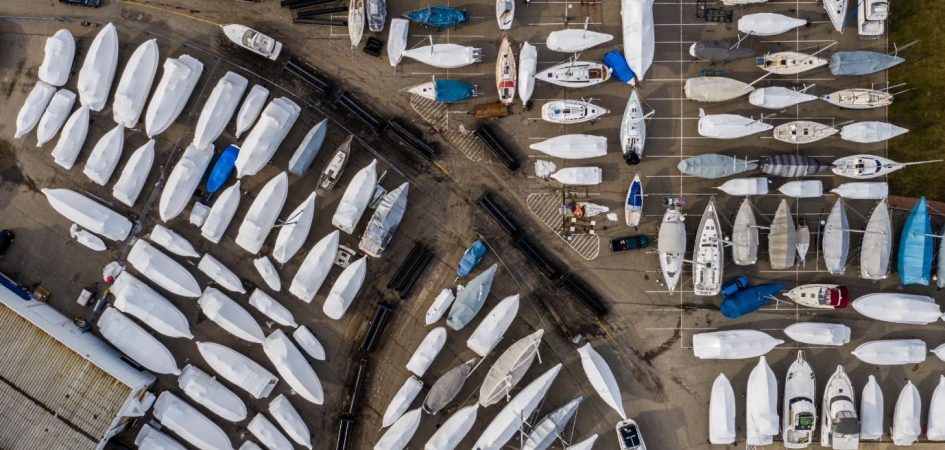
Published on: 07 March 2024

The recent publication of the ICOMIA “Pathways to Propulsion” report has stimulated the industry conversation around Life Cycle Assessments (LCA) and their future role in the industry’s transition to Net Zero. With the ICOMIA report now getting page time in consumer publications such as Yachting Monthly, it can only be a matter of time before our customers start to ask questions about the LCA of our products.
So what is an LCA and why will it matter to us in the marine industry?
A Life Cycle Assessment (LCA) is an analysis of the impact one object has on the world around it. A traditional product life cycle consists of five phases:
- Raw Material Extraction
- Manufacturing & Processing
- Transportation
- Usage & Retail
- Waste Disposal
There are usually four main product life cycle models you can choose for your LCA, but there are others that may be more suitable in special situations. These models include Cradle to Grave, Well to Wheel and Environmental Impact Assessment.
Fundamentally, whichever model is used, an LCA is the gathering of accurate analytical data on the raw material extraction, manufacturing process, transport /distribution, consequences of usage, disposal and recycling of a product.
This will give a result identifying a particular product’s environmental impact across the whole lifecycle.
Why should we be starting to think about this in the Marine Industry?
All industries have been put on notice that national objectives of Net Zero will apply to them, and the calculations to show the achievement of Net Zero for a business will include the input, output, waste and end of life calculations that make up an LCA. As such, LCA and GreenHouse Gas Emissions are going to be a fundamental part of all companies’ business planning, which therefore includes the marine sector.
British Marine will soon be releasing a Decarbonisation Hub to support companies’ awareness and ability to start planning for the coming changes.
We are also supporting the EBI project to create an internationally recognised Marine LCA framework to ensure we are, as an industry, all working on the same page.
European Boating Industry – Life Cycle Assessment Project
With the entry of the EU’s Carbon Border Adjustment Mechanism (CBAM) into its transitional phase, there is a growing need for the marine industry to prepare itself for the future inclusion of our products into both this regulations scope, and what will undoubtedly be other nations carbon border taxation regimes, such as the UK CBAM and US Carbon Intensity fee proposals
The existing European legislation is expected, in the coming years, to affect boatbuilding and there is a choice now for the industry to define its own pathway or follow policymakers. These decisions will impact all international boatyards and will likely also include proving product green claims on eco-design, and inclusion in the future revision of the Recreational Craft Directive expected @ 2030.
In order to ensure suitable embedded greenhouse gases totals can be calculated for our products, we will, as an industry, need to make sure we are in control of the development of the greenhouse gas methodology models that we will be required to use, as well as other environmental impacts and indicators.
Individual LCA initiatives have been undertaken in the past, but none have yet met the statutory requirements outlined in existing draft legislation. Therefore, the European Boating Industry Association has now proposed to take the lead in bringing international stakeholders together to ensure that as an industry, we develop and publish an accepted LCA methodology that is able to be used by all manufacturers to meet future legislation.
Building on existing work carried out by ICOMIA, the EBI proposes to create an LCA methodology that will cover the RCD scope of products and can be incorporated into the future EU legal framework, whilst also being robust enough to meet future legislation from other countries. There is a cost to this, but the risks of not doing this far outweigh the proposed costs. Without an internationally recognised LCA framework, we, as an industry, risk having a fractured, inconsistent approach to LCA which will lead to duplication, wasted resources and increased costs. We must take control of our own LCA future and to do this we must work as one and share the burden.
We believe that this project will be important for all UK boatbuilders and would ask that you indicate to us if you are willing to participate in the project’s funding by emailing [email protected]

